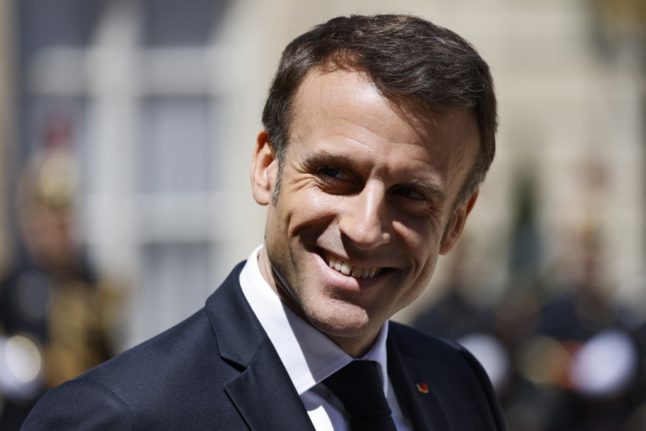French unemployment is the lowest for 40 years. The rate of employment – a figure less often quoted – is the highest for almost half a century.
A grateful nation rejoices. Er, no.
A decade ago unemployment, which was then around 13 percent, was the cause of national misery par excellence. President François Hollande’s five years in office were wrecked by his failure to keep his promise to “reverse the curve of unemployment”.
Unemployment is now 7.1 percent and falling. There is a good chance that President Emmanuel Macron will keep his promise to restore “full employment” – defined as 5.5 percent of working age people officially without a job – by the time that he leaves office in 2027.
By that measure alone (other measures are available) Macron’s presidency has been an extraordinary success for which the French people give him no credit.
Unemployment was one of the noisiest issues in French politics in the four decades up to 2020. Now France has changed the question.
Only 12 percent of people tell pollsters that unemployment is their greatest concern. The pressing issues for the French people are; the cost of living, insecurity and health. (Immigration comes relatively low down the list despite the permanent nervous breakdown on the subject on the Right and Far Right).
Here is the first explanation for the curious absence of national rejoicing. Emmanuel Macron gets no credit for “solving” the unemployment problem because it is no longer a problem.
If pressed on the subject, his critics and enemies downplay, or pour scorn, on his success.
“Unemployment is falling throughout Europe”.
(True but France has not always followed a positive EU pattern in the past.)
“They are all Uber-jobs or McJobs, precarious, part-time or poorly paid.”
(Untrue. According to the latest statistics from INSEE, France’s official statistics office, the number of permanent contracts has increased by 20 percent in the last three years. The number of full-time workers is the highest since records began in 1975.)
“Unemployment is falling for demographic reasons as the population ages.”
(Marginally true at best. The size of the active population in France is still growing, although its rate of increase has slowed.)
France is now actually creating jobs at a rate higher than its modest economic growth explains. There are also many tens of thousands of empty posts unfilled.
Why?
It used to be very expensive to hire people in France and very difficult to fire them. That has changed over the last decade, although the cost of labour (wages plus pay-roll taxes to fund social policies) is still higher in France than it is in Germany and all EU countries outside Scandinavia).
President Nicolas Sarkozy began to reduce payroll taxes in 2007-12. President Hollande, with Macron as his economy minister, continued the process in 2012-6.
He also began to make hiring and firing less complicated. He was detested for it by some in his own Socialist party and the wider Left.
Macron has accelerated the changes in the last six years, with changes in pay-roll and business taxes that are criticised by businesses as vastly complicated and by the Left as “a giant present to the bosses”. He has also simplified/reduced job protections and stiffened the rules for claiming unemployment pay.
Permanent contracts are no longer quite so unbreakable; as a result employers are more likely to sign them.
Does all that explain the fall in the number of unemployed? The Left and the unions say that the tax-breaks have mostly gone into the pockets of “les patrons” – as if paying a huge levy on jobs was somehow normal. The right and far right prefer to talk about immigration and crime – not the modest shift away from high taxes on employment and enterprise which they theoretically support.
All the credit for the fall in unemployment should perhaps not go to Macron. The fact that he is given no credit is perverse.
A problem solved is no longer a problem. No French president is ever popular while in office.
But there is something about Macron which the French particularly love to hate.
Recent insults include: he is a “contemptuous, little technocrat”. His “feet are permanently off the ground”.
Some of this exaggerated Macron-bashing can perhaps be explained by traits in Macron’s character.
The dominant tribes of Left and Right in France have splintered and moved further to the Left and the Right. Macron played his part in encouraging that process; he is now detested from both sides.
He has no natural media constituency of the kind that somewhat protected Sarkozy or Hollande in their darkest days.
About 30 percent of the country (centrist, pro-European, disproportionately old) sticks with Macron. The rest wallows in a near-hysterical hatred of the man who has presided over the solution of the country’s most tenacious problem of the last four decades.
That may something about Macron; it says more about France.



 Please whitelist us to continue reading.
Please whitelist us to continue reading.
Member comments